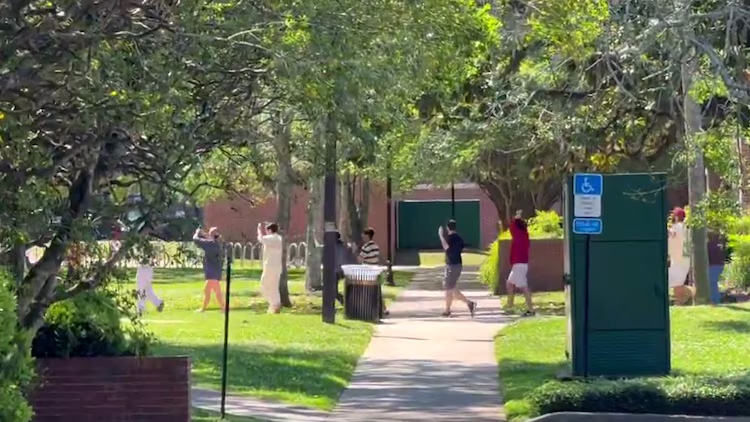Home owner warns of new scam targeting home buyers

GALVESTON, Texas (KTRK) -- A home buyer who fell victim for a growing scam hopes to warn others with his story.
In December, Bill Bowers wanted to downsize to a beachfront condo. A property that he nearly lost after he sent thousands to people pretending to be his title company.
"Once in a while you feel pretty angry about it," Bower said. "There's always somebody out there trying to get over on you."
Two days before closing, he received an email from what he thought was the title company.
"It had pictures of the people that worked there," Bower said. "The same stationary template. It was easy to not even think twice when we did it."
He and his wife called the numbers listed because something didn't feel right.
"A red flag went up when they changed from cashier's check to wire," Bower recalled.
After calling the number, and speaking to a person, he felt reassured. After wiring $40,000 the communication kept coming.
"They sent a couple of friendly emails. 'Have you gotten the time for your closing yet?' Trying to keep us from suspecting anything," Bower said.
But his worst fears were realized when the actual title company contacted him looking for the cashier's check.
"This was everything we planned for," Bower said. "This was our retirement moving forward, and it just seemed like everything was over."
Bower isn't alone. The Houston Association of Realtors (HAR) sent a warning to agents this summer.
It says FBI statistics showed a record number of wire fraud victims in May. Bower said he was never told about the wire fraud issue.
He filed a report with police. But so far hasn't received any money.
Instead of moving on, he withdrew more from his retirement because he didn't want scammers to take away his dream home.
"I guess there's no way around it," Bower said. "You have to be super careful with everything."
After calling police, Bower says he ended all conversations with the number attached to the email.
Eyewitness News called the number, and a man answered the phone and said he did not work for a title company and has never asked anyone to wire closing money.
Here's some advice from HAR on how not to fall victim
- When possible, use a cashier's check for closing funds instead of a wire transfer.
- Call before you wire. Buyers should initiate a call to the title company and have the title representative read back the wiring instructions for verification before initiating a wire transfer.
- If you discover a fraudulent transfer, time is of the essence. First, contact your financial institution and request a recall of the funds. Second, contact your local FBI office and report the fraudulent transfer. Law enforcement may be able to assist the financial institution in recovering funds. Finally, regardless of dollar loss, file a complaint with the FBI's Crime Complaint Center (IC3) at www.ic3.gov.
- Verify by phone all requests for a change in payment type or location. Scammers often request that payments originally scheduled for check dispersal be made via wire instead.
- Most wire fraud cases begin with hacked email accounts and/or bogus emails purportedly from title companies, lenders, real estate brokerages and other trusted sources, so confirm verbally (by phone or in person) about planned email exchanges between parties.
- Fraudulent emails can seem legitimate, containing company logos and branding, as they direct consumers to wire funds to a fraudulent account. Once funds are wired there, that money is lost
.
- Never send personal information, such as bank account numbers or other financial information, via email or other unsecured electronic communication.
- If you receive electronic communication regarding wiring instructions - even if the communication appears to come from a legitimate source - be sure to verify the authenticity of the communication before transferring funds by using a recognized phone number that does NOT appear in the electronic communication.
- In general, brokerages will never use electronic communication, such email, text messages or social media, to ask a consumer to wire funds or provide personal information.
- HAR members are committed to helping consumers realize the American Dream of homeownership every day and are working hard to ensure it does not turn into a financial nightmare.







